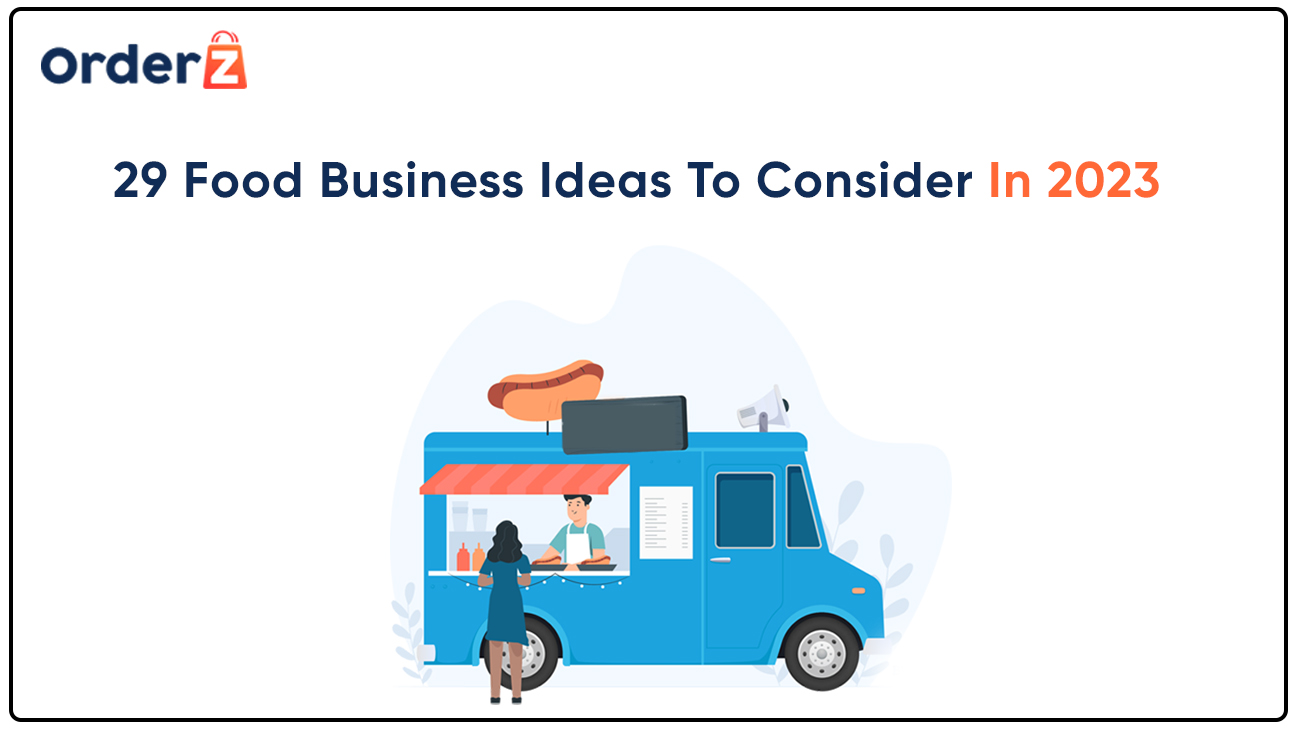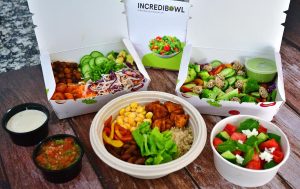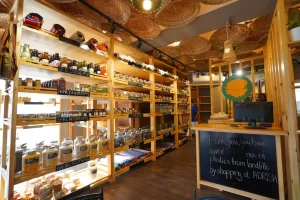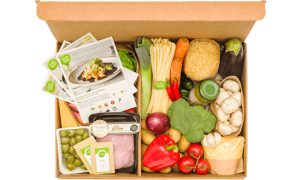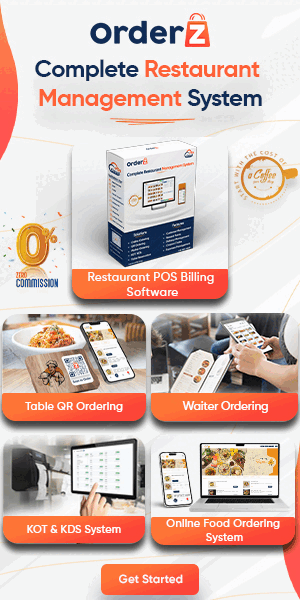Introduction:
2023 is an exciting year for the food industry, offering numerous opportunities for aspiring entrepreneurs to dive into the world of culinary ventures. From health-conscious trends to sustainable innovations, the food business landscape is evolving rapidly, presenting a diverse range of possibilities.
In this blog, we’ve compiled 29 unique and promising food business ideas to inspire your entrepreneurial journey. Whether you’re a seasoned chef or a food enthusiast, there’s something here for everyone to consider in 2023.
Food Business Ideas
-
Artisanal Ice Cream Shop:

Craft delectable and imaginative ice cream flavors using locally sourced and high-quality ingredients, attracting ice cream lovers seeking a unique taste experience.
-
Cloud Kitchen for Healthy Bowls:
Set up a cloud kitchen focused on preparing and delivering nutritious and visually appealing bowls, catering to health-conscious consumers.
-
Food Truck for Global Street Food:
Take your customers on a gastronomic tour with a food truck that serves diverse street food delicacies from around the world.
-
Plant-Based Bakery:
Delight vegans and health enthusiasts with an entirely plant-based bakery, offering an array of delicious and guilt-free treats.
-
Gourmet Popcorn Brand:
Elevate popcorn to a gourmet level by experimenting with exciting flavors and premium ingredients to create a snacking sensation.
-
Craft Soda Brewery:
Create artis anal, handcrafted sodas using natural sweeteners and unique flavors, targeting health-conscious consumers and soda enthusiasts.
-
Sustainable Seafood Restaurant:
Establish a seafood restaurant committed to serving sustainably sourced and responsibly harvested fish and seafood.
-
Eco-Friendly Food Truck:
Differentiate your food truck by adopting eco-friendly practices, such as using biodegradable utensils and packaging.
-
Specialty Tea House:
Curate an extensive selection of specialty teas and create a serene tea house atmosphere for tea aficionados to enjoy.
-
Personalized Meal Prep Service:
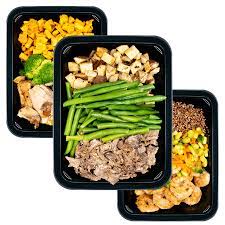
Offer tailored meal prep plans catering to individual dietary preferences and fitness goals, simplifying healthy eating for busy customers.
-
Experiential Dining in Nature:
Organize unique dining experiences in natural settings, combining delectable cuisine with the beauty of the outdoors.
-
Zero-Waste Grocery Store:
Open a zero-waste grocery store that encourages customers to bring their containers and reduces single-use plastic packaging.
-
Authentic Regional Cuisine Restaurant:
Introduce lesser-known regional cuisines from around the world, giving customers an opportunity to savor authentic and unique flavors.
-
Customized Food Platter Delivery:
Create customizable food platters for events and gatherings, providing an assortment of appetizers, snacks, and desserts.
-
Artisanal Cheese-Making Business:
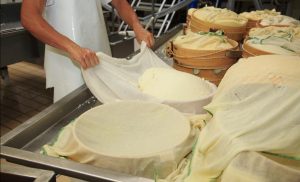
Master the art of cheese-making and offer a selection of handcrafted cheeses to cheese enthusiasts and local markets.
-
Insect-Based Protein Products:
Explore the growing market of insect-based protein products, such as protein bars and snacks, targeting health-conscious and eco-friendly consumers.
-
Fusion Food Truck:
Blend cuisines from different cultures to create exciting fusion dishes and operate a food truck that caters to adventurous eaters.
-
Interactive Cooking Classes:
Host interactive and engaging cooking classes, both in-person and online, where participants can learn to prepare gourmet dishes.
-
Premium Smoothie Bar:
Craft premium smoothies with exotic fruits, superfoods, and creative toppings, attracting health-conscious consumers seeking tasty and nutritious options.
-
Diverse Dumpling Shop:
Serve a wide variety of dumplings from various cultures, offering customers a global dumpling experience under one roof.
-
CBD-Infused Food Products:
Create CBD-infused food products like chocolates, baked goods, and beverages, tapping into the growing market of CBD enthusiasts.
-
Food Subscription Boxes:
Launch a food subscription service delivering curated culinary experiences right to customers’ doorsteps.
-
Edible Garden Installation:
Offer services to install edible gardens in homes and restaurants, promoting sustainable and locally sourced ingredients.
-
Nut Butter Brand:
Produce gourmet nut butters with unique flavors, appealing to health-conscious consumers seeking delicious alternatives.
-
Diner with a Retro Twist:
Reinvent the classic diner concept by adding a retro twist, providing customers with nostalgic comfort food and ambiance.
-
High-End Food Catering:
Start a premium food catering business, specializing in high-quality cuisine for upscale events and gatherings.
-
Food Photography and Styling:
Combine your love for food and photography by offering professional food photography and styling services to restaurants and food brands.
-
Local Food Tours:
Organize guided food tours that showcase the best local eateries and culinary gems in your city or region.
-
Allergen-Free Bakery:
Cater to customers with food allergies and sensitivities by running an allergen-free bakery, providing safe and delicious treats for all.
Simple Steps to Start a Small Food Business:
Starting a small food business can be a fulfilling and rewarding venture for passionate food enthusiasts. While the idea of embarking on this journey may seem overwhelming, following these simple steps will guide you through the process of establishing your food business smoothly and efficiently.
Step 1: Define Your Food Business Concept
Begin by deciding on the type of food business you want to start. Whether it’s a bakery, food truck, café, or catering service, ensure that your concept aligns with your interests and expertise.
Step 2: Conduct Market Research
Conduct thorough market research to understand your target audience, competition, and local food trends. This information will help you tailor your offerings to meet the preferences of potential customers.
Step 3: Create a Basic Business Plan
Craft a simple business plan outlining your business concept, target market, basic marketing strategies, and initial financial projections. This plan will act as a roadmap for your business’s initial stages.
Step 4: Register Your Food Business
Register your food business with the relevant government authorities and obtain any necessary licenses and permits required to operate legally.
Step 5: Set Up Your Kitchen or Production Space
Design and set up your kitchen or production space, ensuring it meets local health and safety standards. Start with the essential equipment and expand as your business grows.
Step 6: Source Quality Ingredients and Suppliers
Identify trustworthy suppliers for your ingredients and food-related products. Emphasize the importance of using high-quality ingredients to deliver excellent taste and consistency.
Step 7: Keep Your Menu Simple
Create a simple and focused menu that showcases your best dishes. Offering a limited menu initially will help you maintain consistency and manage inventory effectively.
Step 8: Set Competitive Prices
Determine your prices by considering the cost of ingredients, labor, and overheads. Keep your pricing competitive and reasonable to attract customers without compromising on quality.
Step 9: Establish an Online Presence
Build an online presence through a basic website and social media profiles. Share appealing photos of your dishes and interact with potential customers to generate interest.
Step 10: Prioritize Food Safety
Adhere to food safety regulations and maintain impeccable hygiene practices in your kitchen. Proper food handling and storage are crucial to build trust with customers.
Step 11: Start with Word-of-Mouth Marketing
In the early stages, rely on word-of-mouth marketing to promote your food business. Encourage friends, family, and satisfied customers to spread the word about your offerings.
Step 12: Focus on Exceptional Customer Service
Provide excellent customer service to create a positive and memorable experience for your customers. Happy customers are more likely to become loyal patrons and recommend your business.
Step 13: Monitor Finances and Adjust as Needed
Keep a close eye on your finances and assess the performance of your business regularly. Adjust your strategies as necessary to meet changing market demands and customer feedback.
Conclusion:
In 2023, the food industry is ripe with opportunities for innovative and passionate entrepreneurs. Whether it’s through plant-based alternatives, experiential dining, sustainable practices, or niche food offerings, there are plenty of food business ideas to explore.
Remember to conduct thorough market research, identify your target audience, and infuse your business with creativity and authenticity.
With dedication and a finger on the pulse of current food trends, your food business can carve a successful niche in this dynamic and ever-evolving industry.
Start a profitable, low-cost food business with OrderZ.
Food is an ever-evolving industry with a wide variety of products, a large number of customers, and endless options for scaling—no matter your level of experience.
This makes it a great business opportunity. Happy cooking and entrepreneurial journey ahead!


